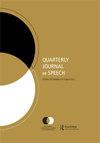堕胎语言,套娃理论,以及对激进变革的自我民族学诉求
IF 1.5
2区 文学
Q2 COMMUNICATION
引用次数: 3
摘要
由于反堕胎的言论,人们必须用一生的时间来学习什么是自己的决定,以及如何在社会上、宗教上、政治上、秘密地和公开地谈论堕胎。在这篇短文中,我们依靠套娃理论来解开复杂的修辞层,这些修辞层控制着人们如何理解关于身体生殖潜力的决策过程。我们使用自我民族志技术来提供生活经验作为证据,证明反堕胎言论和生殖不公正是如何通过内疚、羞耻、强迫、缺乏同意,以及最终缺乏身体自主,以复杂的方式玷污了整个身体自主体系。本文章由计算机程序翻译,如有差异,请以英文原文为准。
Abortion language, nesting dolls theory, and an autoethnographic plea for radical transformation
ABSTRACT Because of anti-abortion rhetoric, people must dedicate a lifetime to learning what decisions are one's own and how to talk about abortion socially, religiously, politically, secretly, and publicly. In this short article, we rely on the nesting doll theory to unpack the complex layers of rhetoric that control how people understand decision making processes regarding a body's reproductive potential. We use autoethnographic techniques to offer lived experience as evidence of the intricate ways anti-abortion rhetoric and reproductive injustice taints the entire system of bodily autonomy via guilt, shame, coercion, lack of consent, and, ultimately, lack of bodily autonomy.
求助全文
通过发布文献求助,成功后即可免费获取论文全文。
去求助
来源期刊

Quarterly Journal of Speech
COMMUNICATION-
CiteScore
1.80
自引率
36.40%
发文量
39
期刊介绍:
The Quarterly Journal of Speech (QJS) publishes articles and book reviews of interest to those who take a rhetorical perspective on the texts, discourses, and cultural practices by which public beliefs and identities are constituted, empowered, and enacted. Rhetorical scholarship now cuts across many different intellectual, disciplinary, and political vectors, and QJS seeks to honor and address the interanimating effects of such differences. No single project, whether modern or postmodern in its orientation, or local, national, or global in its scope, can suffice as the sole locus of rhetorical practice, knowledge and understanding.
 求助内容:
求助内容: 应助结果提醒方式:
应助结果提醒方式:


